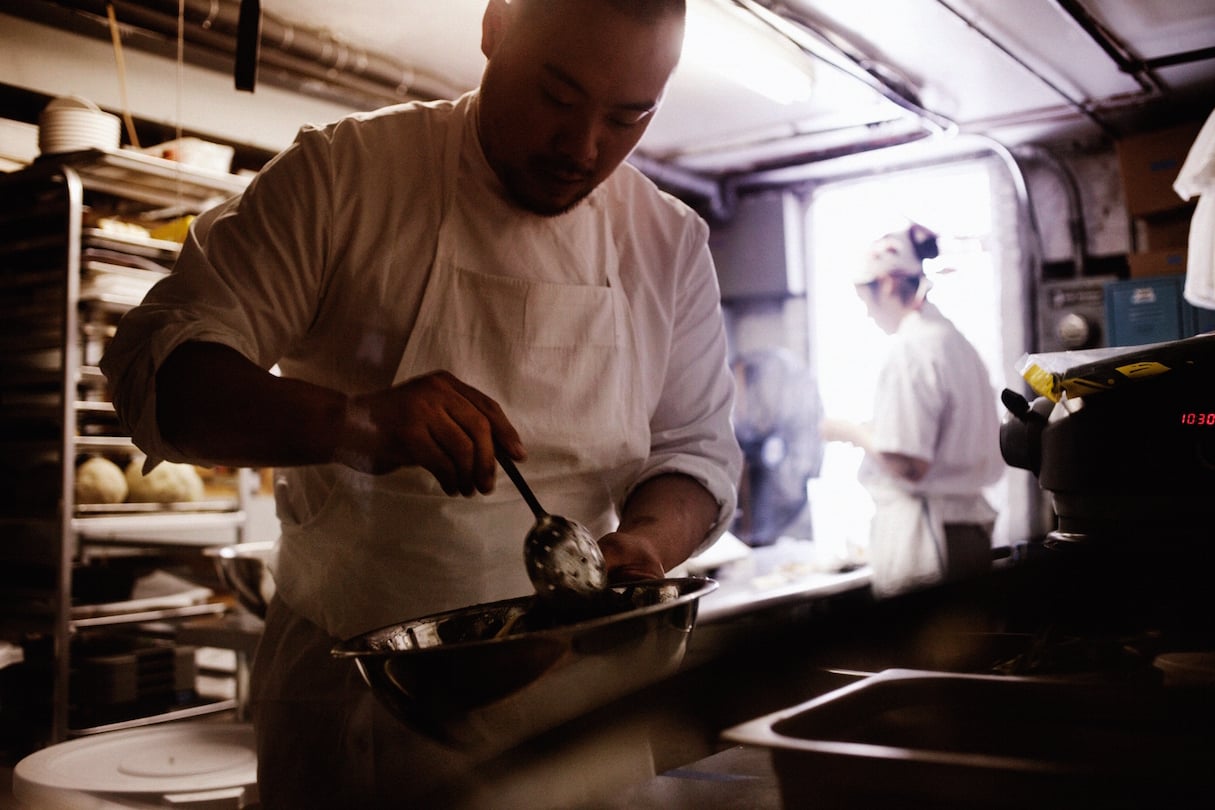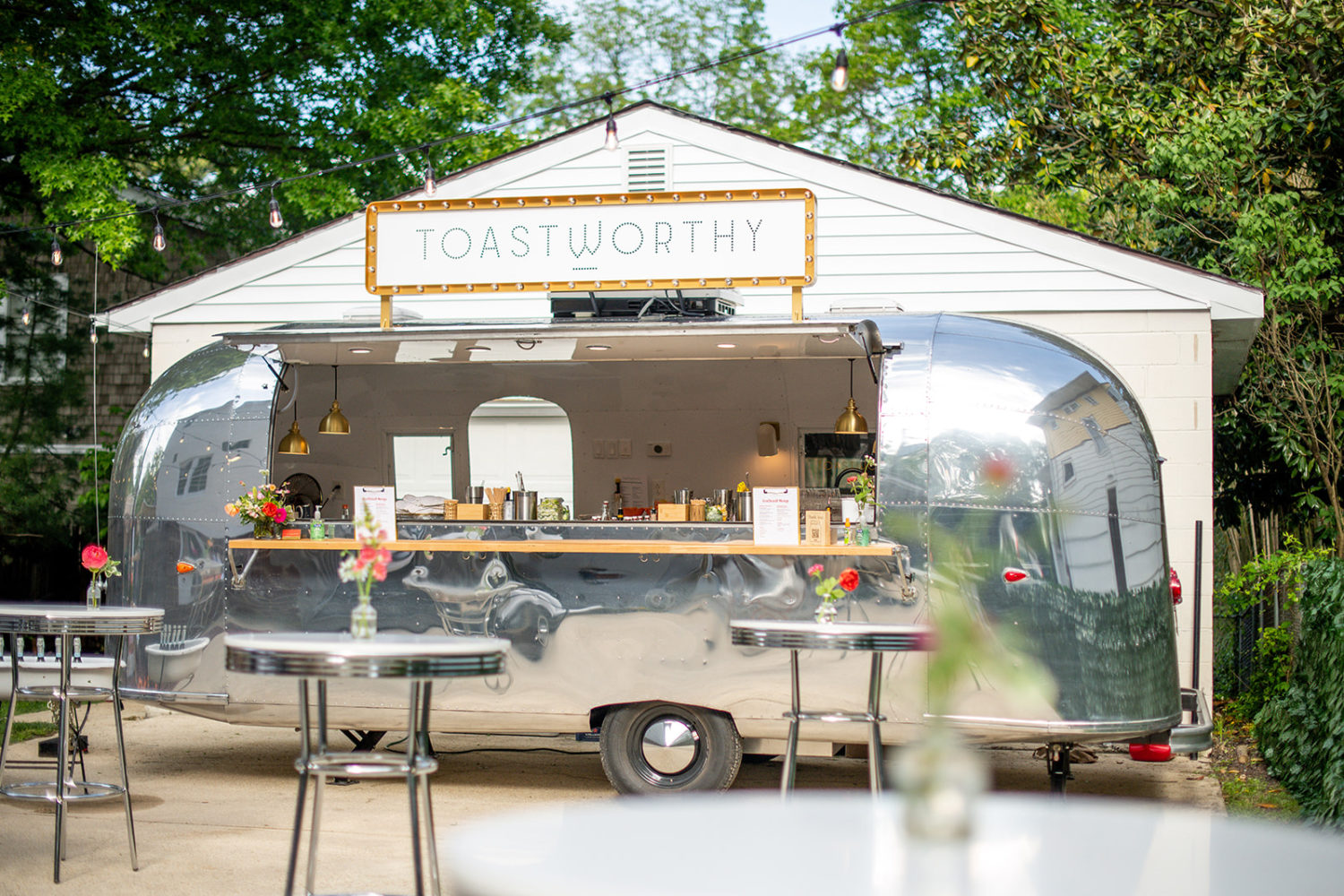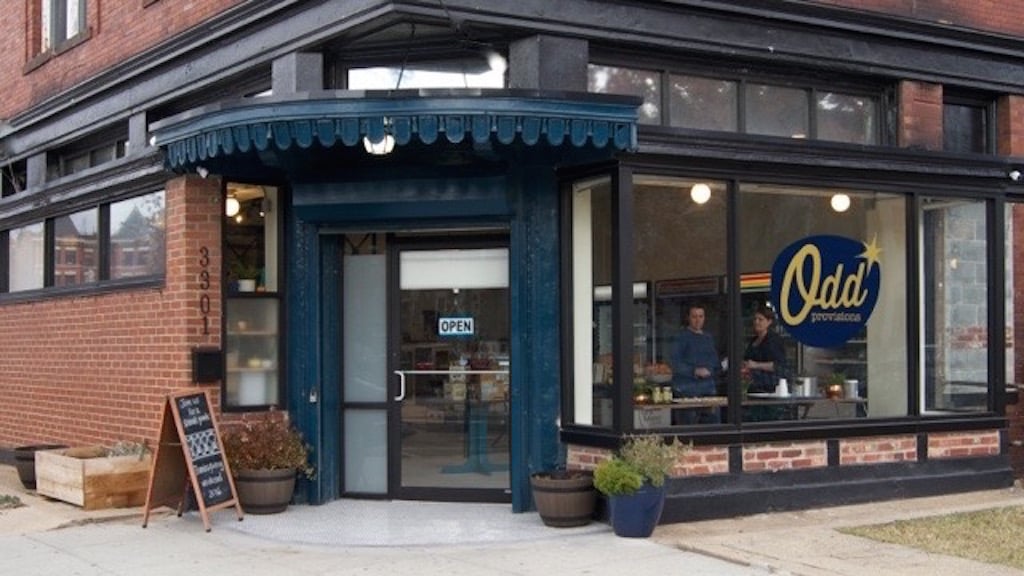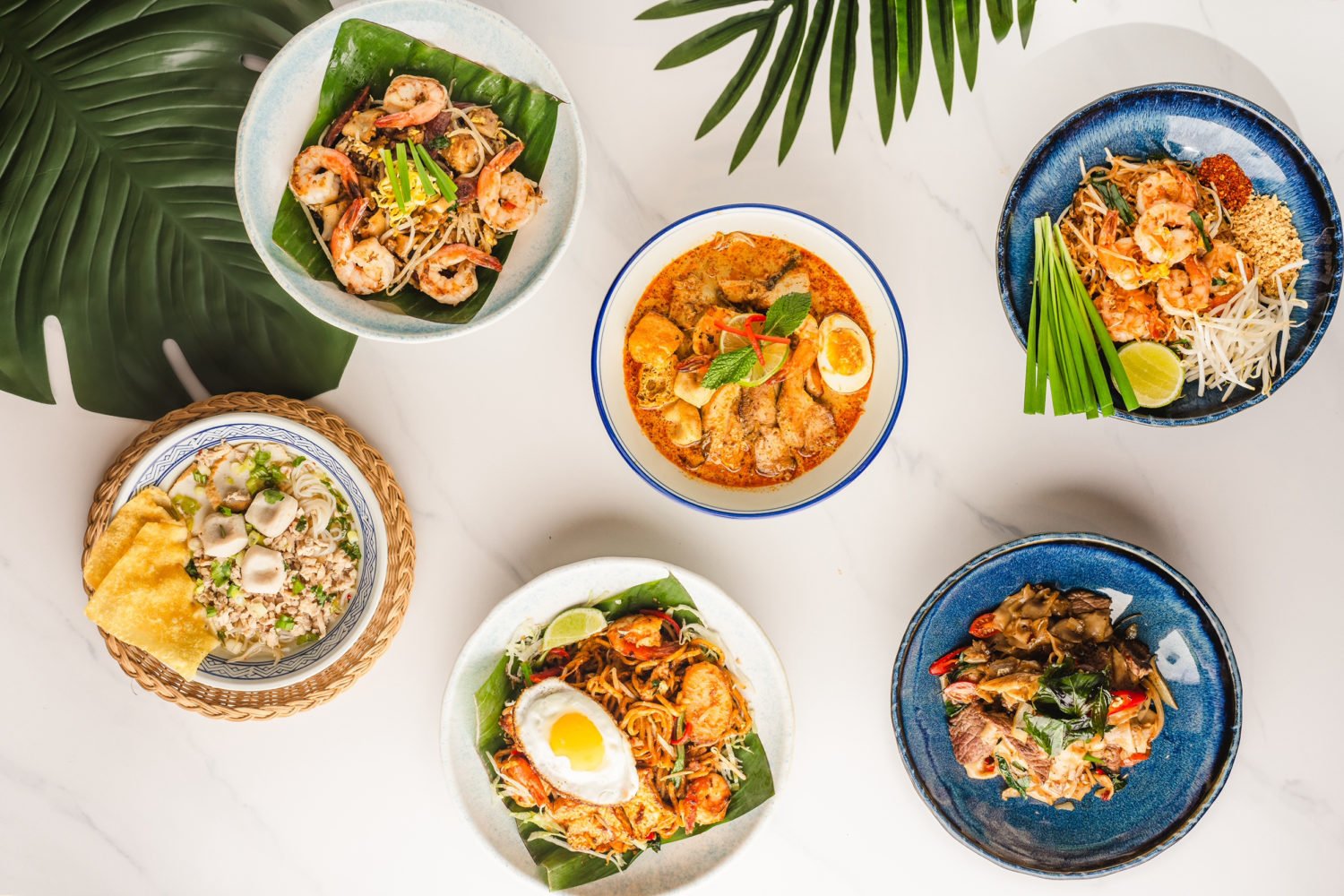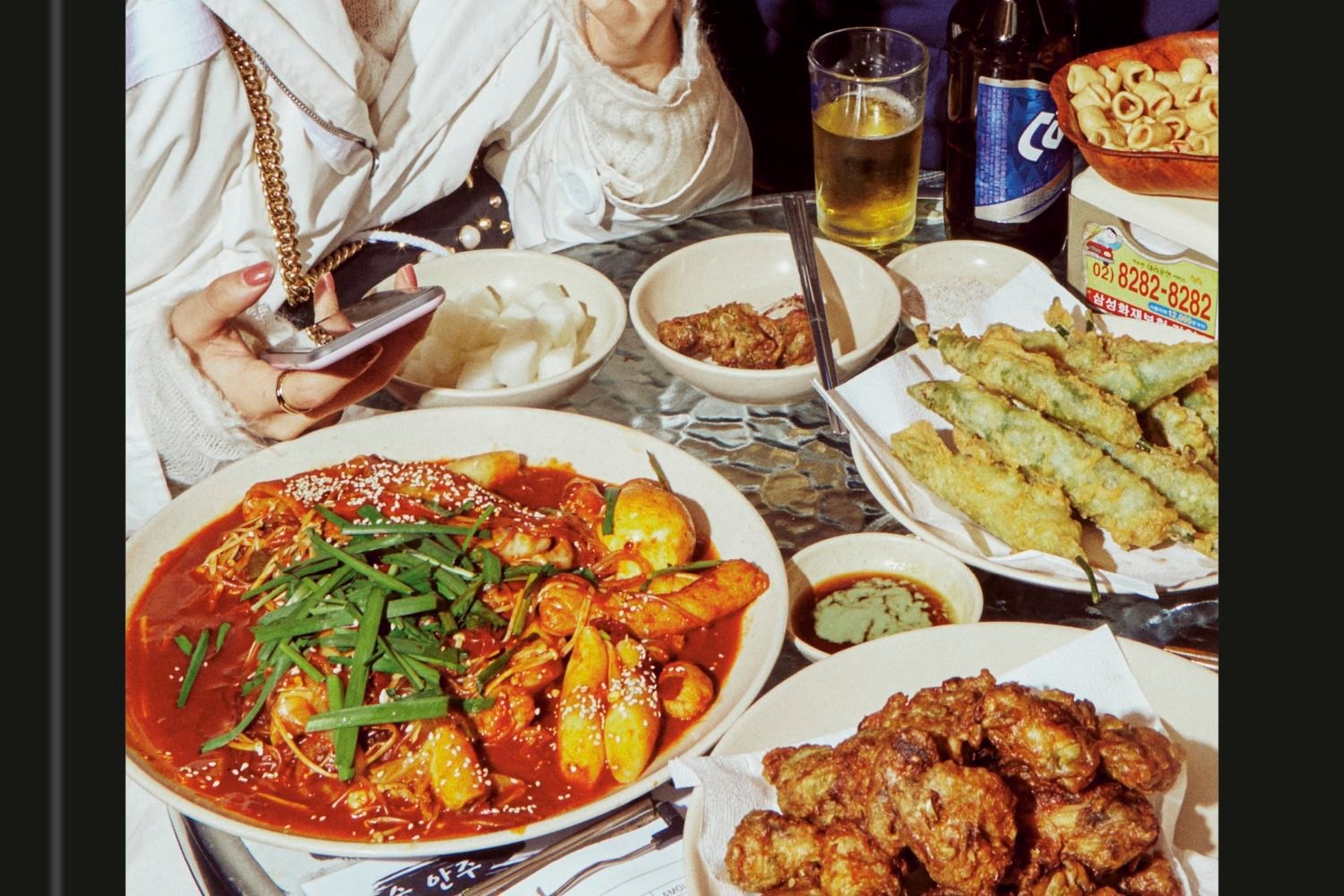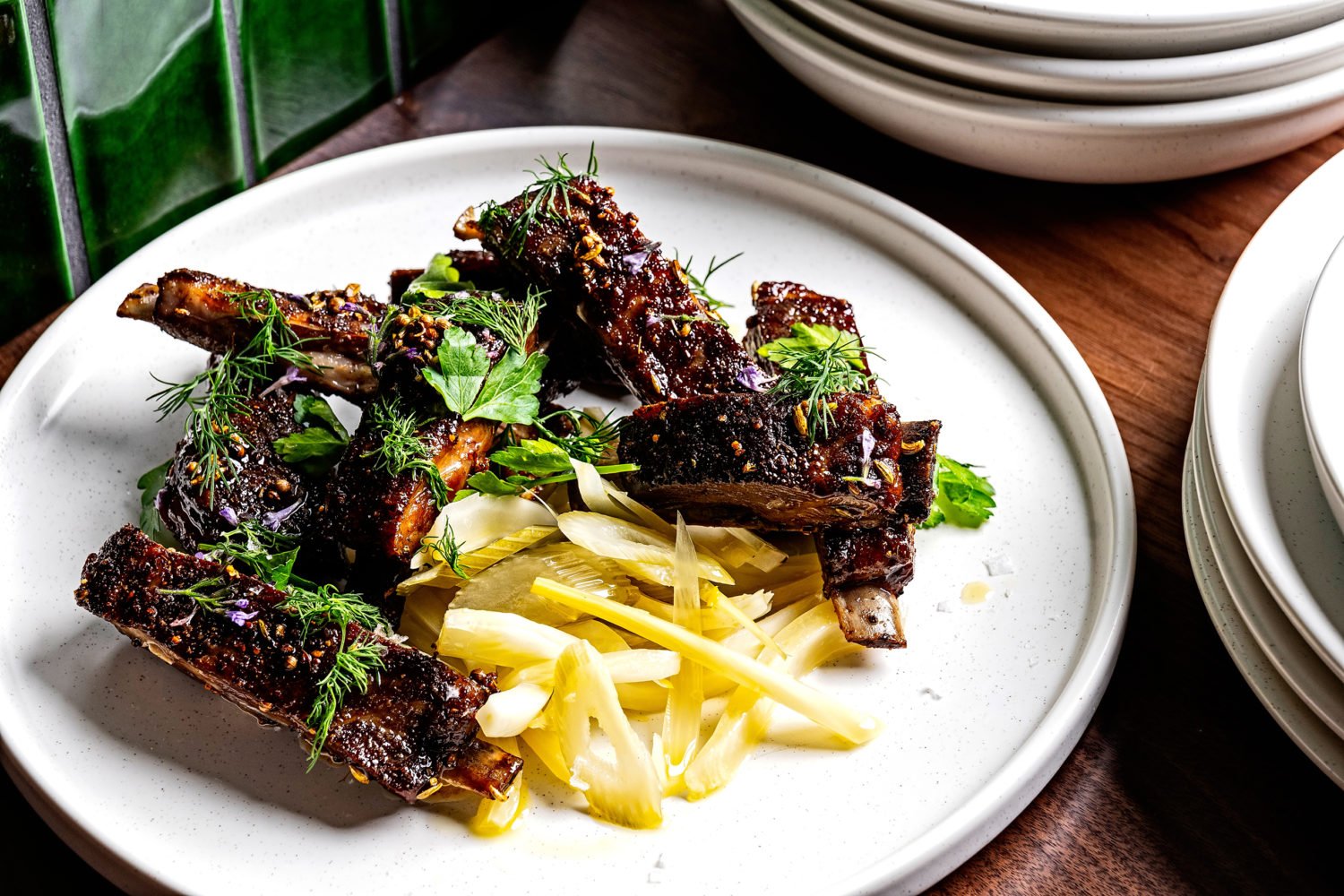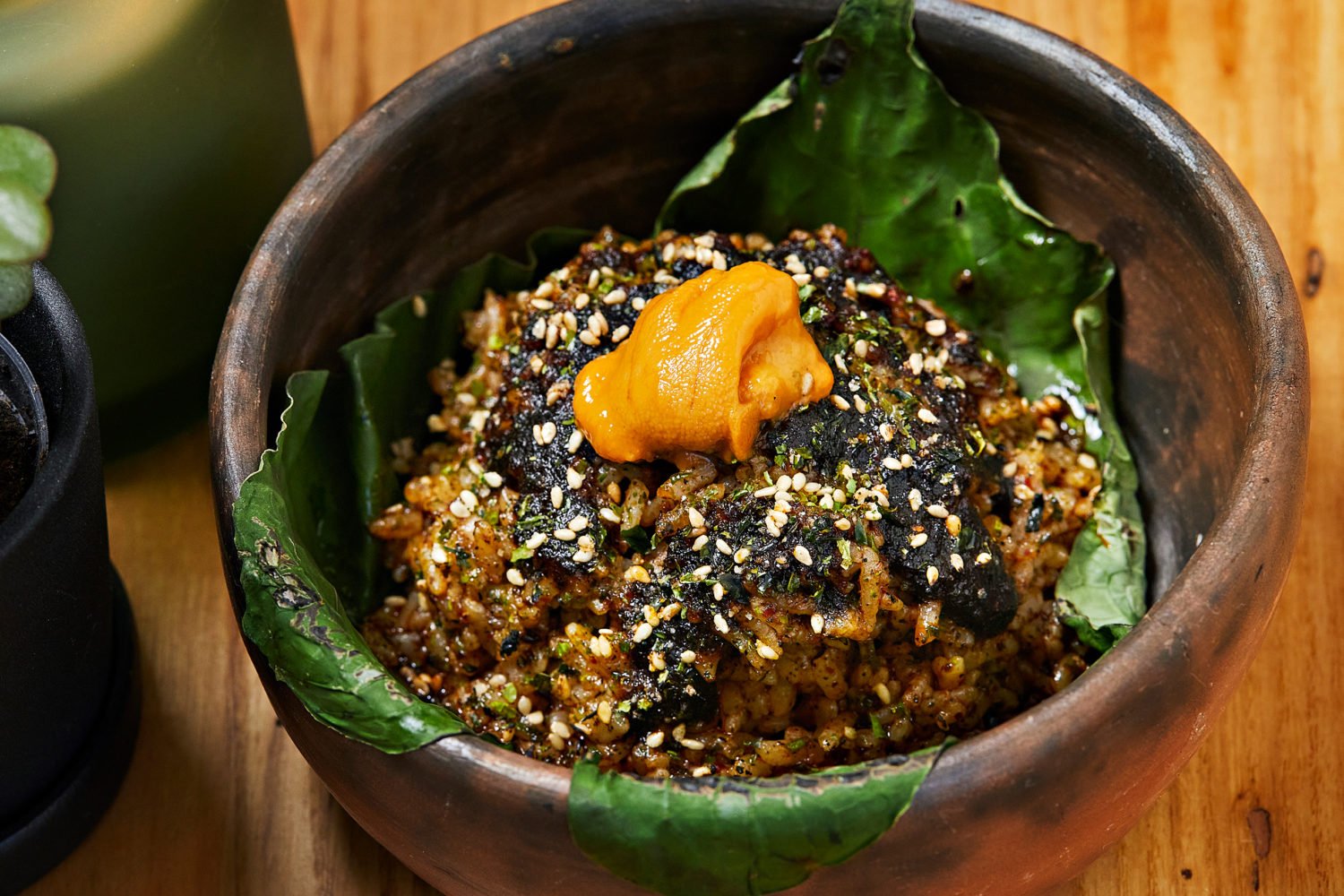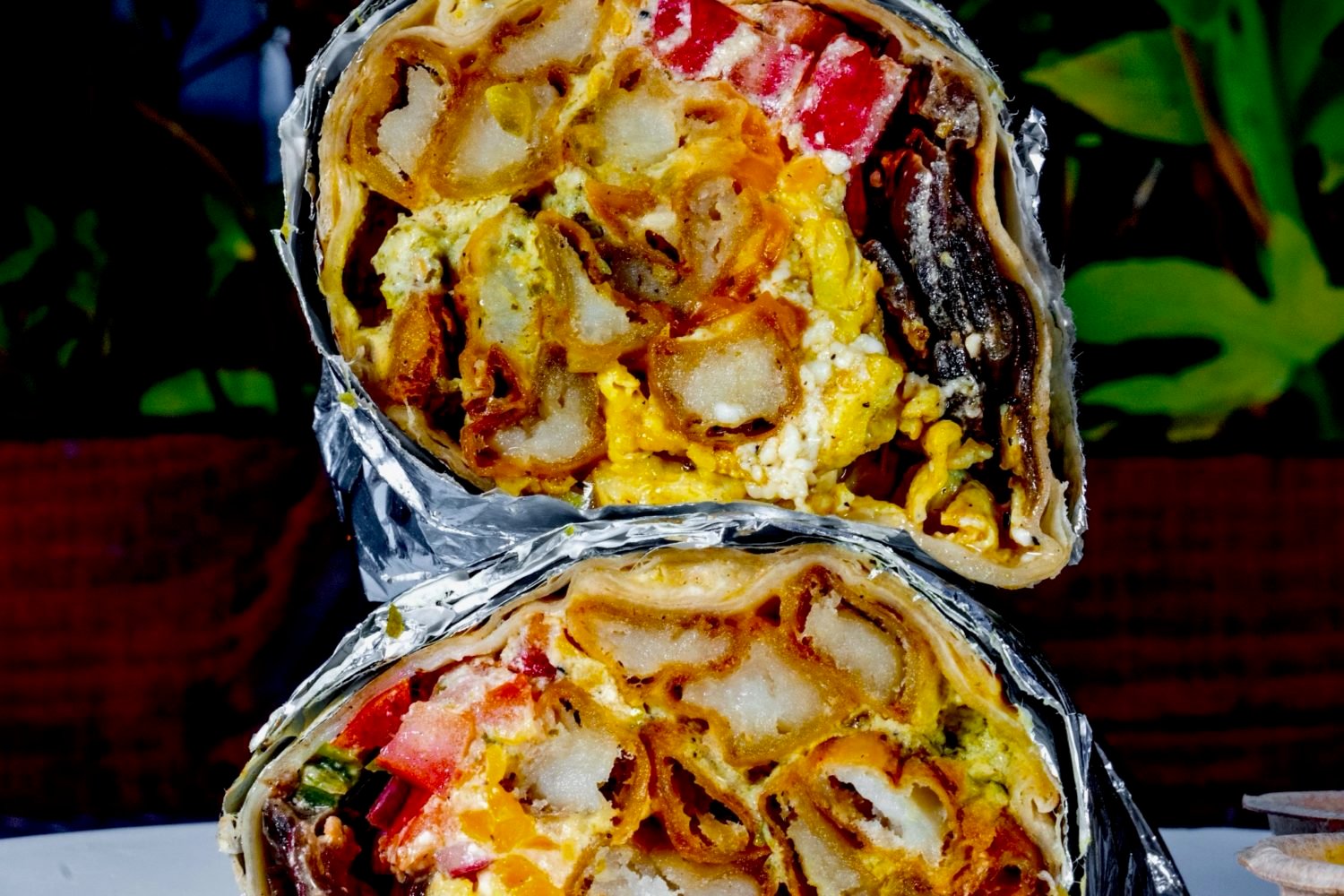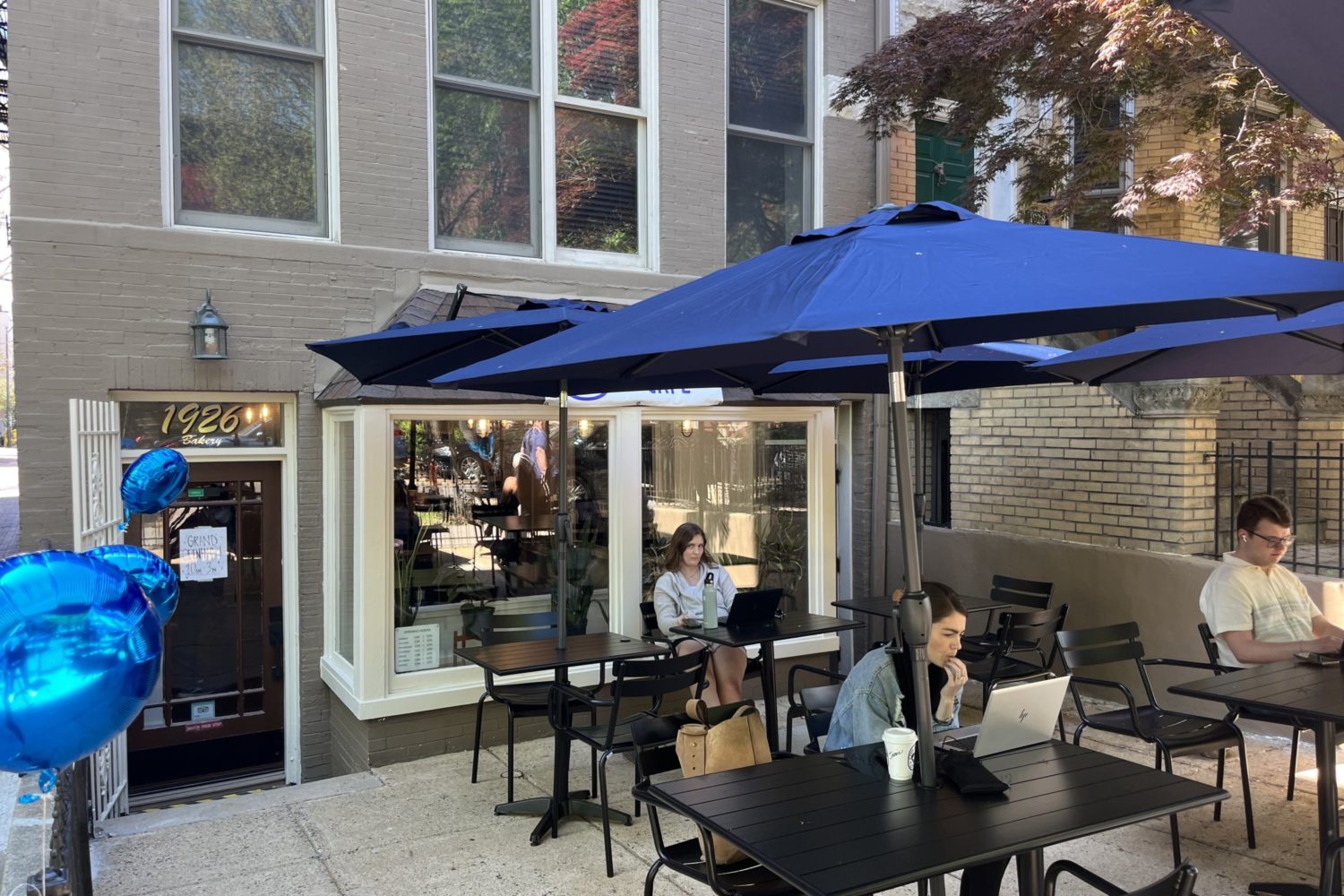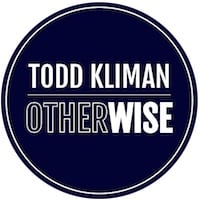
Momofuku CCDC and Milk Bar, which opened last Friday in CityCenterDC, are, jointly, the most hotly anticipated restaurant openings of the year. They’re also homecomings, of a sort, for David Chang, who grew up in Vienna, Virginia, and Milk Bar chef/owner Christina Tosi, who was raised in Springfield.
On Monday afternoon, as his cooks and managers prepped for service later that night–and as a line snaked around the corner for Milk Bar–I sat down with chef Chang in a corner of the spacious, high-ceilinged dining room to talk about opening in a city he once vowed never to return to.
That was not all that was on Chang’s restless mind this day, and the budgeted 45 minutes stretched on for close to an hour and a half as the celebrated chef–by turns neurotic, boastful, self-doubting, guilt-ridden, brashly determined, and, at times, delightfully unhinged–spoke about his dissatisfied father and sleeping in his parents’s basement, the public’s enormous expectations of him, his deep uneasiness over running a chain, his maniacal motivational methods, and his desire to serve “ugly food.”
(Full disclosure: Chang is the founder and publisher of Lucky Peach, a food magazine for which I have contributed.)
You look stressed out.
Dude, you have no idea.
Right now I’m in one of these times where my defenses go down, and then I fucking–I freak the fuck out. No matter how much air I’m trying to get, I can’t get enough.
And it’s like this with every restaurant you open?
Yesterday I almost died.
Did you say “Died”?
I felt like I almost died. I’ve been trying not to yell, which is a big thing for me. And all week long, it’s been, like–“This is not how we do it, this is not what we do, this is not who we are.” Blah blah blah.
It was like that Seinfeld episode, you know, “Serenity now, serenity now.”
Except there was no serenity; there was insanity. I embarassingly freaked out, just yelling, and yelling, and my head felt like–like there was a hole in my head. Like, this just doesn’t feel good. Something’s not right.
And that’s on top of your bad back.
Since we opened up Fuku [his new fast food fried chicken joint in New York] in June, my back’s been gone. I’ve been doing a lot of physical therapy, I do a shit ton of activity now. Barely drink. I take pretty good care of myself. And I’m like, “Motherfucker, it’s a goddamn opening.” Every time, now that I think back on it, it’s like this.
So you’re feeling good and calm and in a proper frame of mind …
All week long I’ve been like, “This is the dumbest thing ever, this is the worst thing. What am I doing? Why are we doing this? This is too impossble.” Like, “You’re an idiot, Dave. You’re an idiot to even say yes, you’re right, you shouldn’t be doing this.” But I’m a masochist.
I know that in a month it’s gonna be like all the good things will start outweighing the negatives. It’s like–I don’t have any kids, I’m sure it’s like having another kid. You’re like, “Ah, I’m never gonna have another kid. Then you have a kid and it’s like–what the fuck was I thinking. Oh, this is the dumbest shit.” And then a year later, “Oh, this is the best thing I’ve ever done.”
Right now I’m in a period where I’m like, I hate this, I hate everyone. That’s what I said yesterday. I said, “I don’t think people realize how much I hate everyone.” And the thing is, is like I’m like handling it all better now.
Clearly.
But this has really been a miserable process.
More than the others?
Different. They’re all different.
Differently miserable.
Differently miserable. I genuinely felt that I took probably a few months off my life like in the past couple of days. Something I did definitely has decreased my lifespan. Without a doubt.
[Laughs darkly.]
And going to bed thinking, I honestly may not wake up tomorrow. Like, it wouldn’t surprise me if I never wake up from sleep. Not as a death wish but I’m like, “Something’s going on, and it’s not good. Why? Why am I doing this?”
So why are you doing this?
We hadn’t opened up a new restaurant, in America, in 5 years.
What about Fuku?
That’s fast food. We’d done Ko, and the opportunity arose. The thing you can’t underestimate is we’re going to have something like damn near a thousand employees, right?
And you started with —?
One. Me. Before that, no one would work with me. I don’t blame them.
People will say it’s greed. They’ll say a lot of different things. We’ve grown and a lot of people have been with me for 11 years, and they’re married and they’ve grown. They have families.
Over the years, if it was just about the money, I literally would have sold out–literally would have sold the company. We’ve had many, many, many offers. And I think that for me I’m at a point in my life, I shouldn’t be here, I understand that, I understand how lucky I’ve been and what an insane ride it’s been. One reason why I never sold the company or let someone give me a ton of money just to grow it obnoxiously, is that I was the only one who was going to benefit. And I would most likely be dead, somewhere in like Southeast Asia. You know? I certainly would be dead.
Not dead because I would have partied too much–dead, because of survivor’s guilt. It really would have been too much for me.
You have an incredibly strong sense of guilt.
Always. It’s fucking insane. It’s like a mixture of Catholics, Jews, and Koreans.
And I think the only way for me to think about this is–and God, you can sound like a total fucking jackass talking like this, and I hate that, but for me, look: I grew up in a really religious household. And I always thought it was imperfect that, like, in the Christian faith there was only one chance, there was only one way. And later I learned all this other stuff–all these other ideas–and it was like, “Oh, like, I’m not gonna reach enlightenment until everyone reaches enlightenment? Huh.” And that just sort of stuck with me.
I think for me the overriding principle is, we have the opportunity now where we can do better. Where we can pay our line cooks generally $25-$30 an hour, and not be limited by $15 an hour. And my sous chefs can all get paid $100,000 minimum. And my managers. And can we start paying our purveyors what they should be getting? This is the goal, at least–a discussion of how a restaurant company can evolve. I’m so conscious of what a self-important jerk I can sound like, but that, to me, is worth exploring.
If it was about the money, look, I could sell Momofuku and probably do stupid shit other chefs do and make money but it’s like people don’t get it–I and many of my friends didn’t get in this business to make money. It’s certainly nice, and money’s nice now. I have more than I thought that I would want. But I don’t like the discrepancy, it fundamentally bothers the shit out of me.
You’re talking about the discrepancy between you at the top and everyone else?
Yeah. I want to take care of my cooks. So that’s like one reason why we’re growing. Another reason is, we had so much fun operating Toronto, in a new space that wasn’t even built for us.
And now, we have new stuff here. To get a new building, with new plumbing, new electricity, new ventilation, air conditioning…it’s the best. Something that works. In New York, we fight against our spaces. Every place we fight against. And so much effort goes into fighting the space that eventually it shapes how you cook.
When we talked a year ago, when you made the big announcement, you talked about coming back to DC–how it’s something you never imagined doing, how your feelings about home were always deeply conflicted, at best, etc. But also how your feelings have evolved over the years. And now you’re here. What does it feel like now, in week 1?
I left DC and never wanted to come back. I grew up in DC, and when I moved to college [Trinity College, in Connecticut] I said, “This place, I’m never coming back.” I thought that most teenagers loved their teenage life, only later did I learn like, “Oh, most people fucking hated it.” And I was one of those people that fucking hated it here.
I think I struggled with the fact that I was weird. Not weird, but just different. And it left a distaste in my mouth for this area. It was just this place I couldn’t call home anymore. I wandered around for years, living all over the place.
There was a lot of stuff that was going on in my family life, a lot of things to work through, and I think I just reached a place where I was just happier being me. And it was like a twenty-year journey of sort of just me being me.
And also [Milk Bar chef Christina] Tosi’s from here. And I’d always bum rides with her back home whenever I had a chance–she comes back home a lot more than I do. But also just coming home to see my parents quite a bit more. And you know, something happened.
Your dad was just here, wasn’t he?
Yeah. And I fucking had a shouting match with him. He was like, “Well, the food was too salty,” and I’m like, “Fuck! Like, now I know how my employees feel!” “The bathroom, it’s not nice.” Like, motherfucker! Jesus Christ, Dad! I came home for this. I’m sleeping in their basement–in their fucking basement, in Vienna, Virginia. And I’m like, “Oh, my God, this is what I signed myself up for.”
The warm and tender bosom of home.
But seriously, like, all of a sudden, DC became something other than what I thought it was. I looked at it a little bit closer and was like, “Huh.”
If I’m gonna open up another place outside of New York, where would I do it? You know, it has to have some type of significance.
Sure. But the fact is, DC wasn’t first; it wasn’t the place you chose to open up. Nor, after you expanded, was it second or third. You have multiple locations–New York, Toronto, Sydney, and now here. You come to DC, and by this point you’re, like it or not, a brand.
Yeah, that’s the challenge. How do you grow a chain, and be a chain, but not be a chain, you know? Like, it’s 100 percent a chain, but 100 percent at the same time fucking totally insane anarchy-driven and creative.
I thought that we could do something here, where I think it tied into a lot about how Tosi and I both felt about home. It wasn’t a place to, like, be embarrassed about. It’s like people will say, “Where did you grow up?” and I’d always say the DC area, because it was just easier. And now I’ll say: “Vienna, Virginia.” I’m just more comfortable with that.
You come home now, and I mean–you’re something of a carpetbagger. You’re a New York chef and restaurateur, opening in DC. That can’t have escaped your notice.
No, I get it. Like, when all these other chefs come into New York, some of them I’m like, “Yes!” but most of them I’m like, “Fuck you.”
And I want to do our best where someone has to be like, even when they hate us, they’re like: “all right.” That’s sort of my internal goal, is how do we make a restaurant where people go, “Fuck you, I hate that place”–but they go anyway. They go, but they won’t tell anyone they go. That’s what I want.
I used the word “brand.” It’s not a word I know you’d ever use. But is there a Momofuku style or approach or ethos?
This is how I describe it to new people when they start working here–and a lot of these guys are coming from different restaurants. I tell them, “We’re not doing anything new.” And I’m comfortable in saying that. “We’re not gonna try to create anything new, we’re not gonna try to do anything new. We’re just gonna fucking care more than anyone else. No one else is gonna tell us that we can’t care more than anyone else. We are literally going to do our best, short of dying, to make this the best place possible, knowing full well that it will be littered with mistakes left and right. But if we care more than anyone else, I think that’s why people will want to come. I want people to be like, ‘I didn’t like the food here, but man, I like it.’”
The menu, right now, is pretty small–smaller than what you seemed to have suggested, a year ago, it would be.
God, it makes me so mad that this menu is like this Greatest Hits right now, it fucking drives me insane.
Weren’t you going to do pupusas?
Yeah! That was on there. But that fucking died.
Why?
It didn’t taste good! And not to say no–I want to.
The menu wasn’t that small last week. But all the new shit we tried–it’s gone. We just can’t cook it, we don’t know how to cook it. Last night we were gonna put pork meatballs on. Had to go. Too salty. Can’t do it.
There’s only two new things on the fucking menu right now that made it through the editing process. They have to pass that bar of–“oh, that’s fucking great.” And it could be something simple. Like, my favorite item on the menu is a wedge salad with ranch dressing. Because it’s awesome! Iceberg and ranch: can’t fucking get better than that, I don’t care what anyone says.
It’s been a hard process explaining to staff what we do. It’s like, “No, we’re not Noodle Bar.” I told them, like, in a year if we don’t have to serve fucking noodles–hallelujah. And they were like, “What are you talking about?” “No, I’m like dead serious. I don’t want to fucking serve noodles.” I don’t. I have a rotisserie over there. I’ve got space for a pizza oven or a fryer over there. Just in case. There’s room to grow. They’re like, “You’re out of your mind.” I know they’re saying this.
I don’t see this as Noodle Bar. I really don’t. And that’s been the struggle, like–what the fuck do we serve, then?
If you serve noodles, you’re kind of a noodle bar, no?
This is a new restaurant, and we have a collection of talent that we have never had before. And given time, we will be able to grow into this space, and be something that’s very familiar and also extraordinarily crazy. I want it organic.
I’d love for the pupusas to happen. If Ssam Bar [in New York] started serving, literally, like steak sandwiches, and that was all we served, that would be the coolest shit ever. Because that means we’d taken this crazy fucking journey, and we’re still successful, and people love it more than ever. That’s the fucking best shit.
At the end of the day, how people leave your restaurant is the only thing that matters. What they eat, who gives a fuck?
This is what I tell our employees: People can leave and be like, “Ok, I got my calories for the day, it’s great.” Or they can leave, like, “Thanks, asshole, for recommending this place, I’m never gonna trust you again. It sucked. I knew it was gonna suck, I knew I shouldn’t have come here, and I want this meal back so I can eat somewhere else.” Or they can leave and be like, “Wow. That was fucking awesome.” That feeling of euphoria. That’s what I want. I would rather fail, trying for that. And I think a lot of people here are in it for the middle–like, we’ve got that calorie count for the day.
I don’t want to live in that world.
How can you tell? Is there a way, or are there ways, to distinguish the super committed from the merely committed?
This business, everyone works really hard. I think what I’m talking about is just a belief system that no one is gonna work harder than us. Everything I’m telling you, is what I tell them: “We’re not the most talented, we’re not the most well-funded, we’re not the best looking, we’re not the fastest. But we’re gonna fucking win. And winning means getting those customers to fucking leave saying, ‘I’m so happy I came. I’m so happy. And we had a great time even though it had a lot of hype.’”
I feel like I’m in the locker room at halftime, and my team is down three touchdowns.
Yeah, absolutely. It’s like a line in this Kubrick documentary I saw–“You either care or you don’t care when you make a movie.” And there’s no compromise. And if you think you’re working hard and you care, it’s not nearly enough. And you have to be fully committed.
To know that that knife cut, that brunois, that you just did is actually shit. And even if it was amazing, the next time you do it can you time yourself, can you shave off a whole second? Can you actually make it just a little bit more perfect? For your own sense of fucking integrity. And if you can do that, like, that’s what makes this business the best business. Cause you’re getting people who normally not give a fuck about getting better, wanting to get better, not because of money, but because of their own intrinsic reward, and pride.
And that’s why I say like, if we were not the peach, if that wasn’t our logo, we would be the fucking tortoise. Because we’re going to find a way. [Our motto], it’s literally, still: fuck you.
You’ve opened in City Center, which is full of big, glitzy restaurants, although—and this is my read on things—none has lived up to its promise. Daniel Boulud’s DBGB, also from New York, has not wowed. Fig & Olive has had, shall we say, some problems. Mango Tree is dazzling to look at, less so on the plate. Centrolina has had its moments, but not enough.
Here’s what I now internalize: We may not live up to everyone’s expectations. It may be just not that good. But you know what? Not to just convince myself otherwise, but fine, perfect. We’re not here for a fucking year lease. We’re not here for five years. We’re here for the long haul.
How long?
Indefinite. I’m always gonna love the Washington Redskins, my family is never gonna leave here–I’m here. It’s a lot closer than a 20-hour flight to Sydney, Australia, i can tell you that much.
And let us make mistakes.
Look, it fucking literally fucking rips me inside when people leave here like they had a terrible time. Even worse when they’re like, eh. I literally want to smash my head against the wall.
If we don’t get there in year one, then we get there in year two, but as I said, we’ll get there. We will fail multiple races, but whatever that end goal is we’ll get there. If we have to claw tooth and nail, we’ll get there.
Is the secret to your success your–what’s the word I’m looking for?
Anger?
[Laughs.]
Anger, yeah, but —
Schizophrenia?
[Laughs again.]
Well, that, too. But I guess what I’m getting at is an internal sense of–“You know, I’m not that good. I’m just not that good.”
For sure. If you ask any of my teachers in elementary school and high school, it’d be like–mm, no. All my culinary instructors–no. The chefs that I worked for–no. But what they would have said is, “Dave will never lie to you or steal. And he will try.”
And you hold onto that, right? You nurture that. Because that’s how you still see yourself, despite everything–not as a highly accomplished, hugely successful chef.
No one ever told me I was great. Talk to my psychiatrist, it’s like, I have a hard time understanding my self-worth.
In a way, I guess the analogy is–not that I’m anorexic or anything, but, like, there are a lot of healthy women out there who look in the mirror and see themselves as not who the society views them as.
How I view myself–and, literally, this is like twelve years of therapy–it’s like, I still have an impossible time accepting how people see me. And understanding how things are viewed.
I opened Momofuku Noodle Bar and it failed. People forget that. Nobody wanted it! And it was only when it was like, “Fuck it, fuck everybody, we’re gonna do it this way,” that it started to work, because we just started to be ourselves.
We came from nothing. And like, I don’t forget that. I know my place in the whole culinary world. I’m a classicist at heart. The only reason we carved out this niche is that there was no room for me there. I had to find another path. No one’s ever anointed me, like–you’re the best this, the best that, the way the media has. But that’s not how I view myself. And like, if I start believing it, I’m gonna start to spin off the planet. I’ll have real fucking panic attacks.
I mean, fuck, I took a Klonopin today.
Klonopin? What’s that for?
Fucking panic attacks and anxiety.
I’ve heard people say that this space is not what they thought Momofuku is. It’s not what they thought the name represents. You started out with a very DIY sort of punk aesthetic, and like it or not that has defined you.
We’re in a very wealthy building setting. We’re a place that has a lot of expectations on us. We’re a place that looks fancy for a Momofuku. We’re a place that has lines now.
The way I look at it, the analogy I use is, we’re making a movie with a big budget. Same filmmaker, same sensibilities. And the editing never stops. It’s a movie in constant release.
Well, but the filmmaker is a different sort of filmmaker, right? Because of expectations. He’s a filmmaker that people expect a hit from. Experiment, be creative, sure–but give us a hit.
People are coming here for a variety of reasons, which I don’t fucking know. Some people are coming ‘cause of the name. Some people are coming for the accolades. Whatever. But they don’t eat that. What they’re eating is right here and right now.
And that’s the only thing we can focus on, and we have to almost meditate and be in that moment all the fucking time.
I blew up at my garde manger station [where cold dishes are assembled] last night, ’cause they were mailing in fucking like two dishes at 10 o’clock.
Mailing it in how?
Can I bring her over?
No no no. Don’t.
We have this dish, a rockfish dish [served raw, with apple slices and shallots.] I wanted volume in how we were slicing our apple slices. It’s a very little thing, but how you place the shallots on the fish, you sort of need a little space in there. And I told my garde manger this very, very fucking calmly–“It doesn’t look like a lot, but you need a little volume so it’s not flat, flat, flat.” I worked with her for, like, literally an hour plating these at the start.
10 o’clock, two of them come out, she doesn’t know I’m looking at her in the corner. And they’re just–flat. And I’m like, “What are you fucking doing? What are you doing?” Like, I don’t even understand. I don’t understand. I understand, ’cause, listen, I’ve been that person, too: “I’m fucking tired, chef, I’ve been working the entire fucking day, and don’t give me shit–it’s gonna taste delicious.”
We gotta train people to care about doing the things that don’t matter at all. And it’s gonna hurt.
A few services ago, I was just so pissed. This guy had, like, pre-cooked this kimchi stew at, like, 9:30. And around that time it’s like, why? He was so afraid he was gonna get slaughtered that he started sand-bagging.
Taking a shortcut.
Taking a shortcut. And I’m like, “OK, if we know we’re gonna sell it, but why do we have so much of it right here?” He’s like: uhhhh … uhhhh. And it’s like, “Dude, if your family, like, raised cabbage, or pork, or your family grew the chilis, or grew the garlic–we’re not even talking about taking the lives of animals yet–I highly doubt you would have fucking been as careless. If you respected the process … ’cause the reality is, you’re being extraordinarily disrespectful to everything. And if you cared about it–if you took the time to think that this did not literally just fall off a fucking tree or off the back of a fucking truck, there was a lot of work for you to get it here–you would have made that much more delicious and you would have been a lot more thoughtful about being frugal about it all.”
I sound like a lunatic. But it’s like, if you start to think about everything that we have in here, how fortunate we are, and everything that’s coming in here–if you don’t do your job, and care about that little thing, everything else falls apart. It drives me insane.
It’s my job to show them that they can care more. And it’s an exhausting process. ‘Cause it’s not teaching cooking.
And you’re not going to be here indefinitely–you’re not going to be here to ride herd all the time–you’re going to go back to New York.
I will. But I’ll be here, I’ll definitely be down, I will.
So if there’re so many things that aren’t right–the menu, the plating, etc.–why did you open now as opposed to a month from now?
I would rather do a month from now. But like, it’s still a business. And having done a variety of openings, you know, you learn that people don’t, like, move if they don’t really have to. The focus and the effort just isn’t the same. It’s like reading about sex. It’s a whole ‘nother thing. You can prepare all you want, but until you open the doors, it’s not the same.
This is a huge space–the biggest space you’ve had. 10,000 feet. And you’re packing them in–it’s a very New York experience, sitting in that dining room. People are really close to one another. It’s tight and high-energy, and things are moving really fast.
We want to make great food for a lot of people. We want to make it affordable. Not affordable–value.
And that’s another thing. It’s hard. I don’t know what this restaurant is gonna be yet.
Let’s talk about that for a second. You touched on it earlier, but I think a lot of people are going to hear that and think: What? You just opened a restaurant, and you don’t know what it’s going to be? How is that possible?
You know, like, we have a private dining room. And I was just thinking recently, you know, DC has a lot of steakhouses–what if we did a steakhouse?
Seriously? A steakhouse? No…
I mean, we don’t even know if we’re gonna do it, but that’s what I was just working on on the menu when you walked in. Who knows if we’re gonna do it.
You know what? I’m at a point in my life where I want to do all the things that no one thinks that we should do.
Like a salad bar–didn’t you talk to me about that a year ago? Salad bar and pupusas.
Yeah. That’s sort of where it was and still is. Like, we had Welsh rarebit on the menu, and people were eating the shit out of it. But it’s like–what?! I wanted to put crumpet sandwiches on the menu; when we do lunch I want to do a whole menu of crumpet sandwiches–crumpet French dips. Called the Momo Dip. The crumpet in my opinion is the greatest vehicle for a sandwich, that has been undiscovered for the most part if you’re not from the UK. It’s also great because you bake it in house, it’s got that good crust, and I want to serve it, because I love the French dip sandwich. It’s no bullshit. It’s everything I want: soup and a sandwich in one.
And nobody else has it.
Because it’s not cool! So, like, a steakhouse, whether we do it or not, like, I think it would be cool to find cuts like–I think that maybe we do just all short rib. Maybe we don’t even do it. Maybe it would just be us doing large meats. Non-traditional cuts. I’m a sucker for the whole 109–the whole rib cap. That would be fucking cool.
That could turn into, like, a serious sit-down restaurant back there, too. It could be a whole bunch of shit. And I think that’s what’s fun.
So nothing at this point is set, then —
Nothing is ever set. I don’t think anyone has ever accused us of having a strategic vision. I mean, this morning I was with the managers and I pitched them, I was like, “Can we do buffet? I want to do buffet very badly.”
Really?
Yeah. Just in that room. That would be so awesome. Like, heatlamps and steamtables.
French dips, pupusas, Welsh rarebit, salad bar, buffet and steam tables …
[Roars with diabolical laughter]
Everyone’s doing the same shit. I want ugly food. I put the braised chicken on from Wu’s Garden [the now-closed Vienna restaurant that was his childhood favorite]. Which is, like, my all-time favorite dish. And people were just like–eh. ‘Cause it doesn’t look cool! It’s braised fried chicken, in a brown sauce. It’s a whole Shandong style of cuisine, and I just think it’s dynamic and delicious, and I couldn’t fucking give it away when we were doing Friends and Family nights. Do I want to find a way to put it back on? Yeah.
People have expectations of this restaurant. You talked about it earlier–the accolades, the reputation, that Momofuku has. And, probably, they’re expecting–many of them, I would think–greatness out of the gate. Which all seems to run counter to what you want for the place–a restaurant that is different from all the others in the portfolio, that develops according to the specific talents you’ve brought in, that takes its time to find what it is.
It has to be organic. You can’t know everything at the start. Look, Ssam Bar, the Ssam Bar of today, was an accident. It happened because we were going to go out of business. We did Chipotle before anyone else. That was what Ssam Bar was. It was set up like a burrito bar. I had my dad’s business and my apartment and the existing business [Noodle Bar] as collateral and I took a million dollar loan out in 2006 and I lost everything and my parents’s shit. So, when the loan officer comes and says, like, you know, we’re gonna foreclose, it’s, like, I was dead man walking. I viewed it as being a terminal cancer patient. Like, “OK, what’s the craziest fucking thing we can do then?” We opened a restaurant from 12 to 4 in the morning, seven days a week. You know, no sleep, fuck it.
And it was liberating. I’d never want to go through it again. It was hell on earth. But it was liberating. To be able to be like–we’re gonna do whatever we fucking want. And that became the ethos of what Ssam Bar is today. But what we started with–it didn’t work.
The way I look at it is, and I hate living in a world of analogies, even if you’re a super fan of a band and they only just play they’re newer album, you’re like, eh. And the buns and the noodles–those are the songs people fucking want.
I think for a long time I thought I was cooking for a wide audience.
A white audience?
Not white–a wide audience. It has been a lot of white people.
And that surprises you?
No, I think we’re not really feeding that many people. I wanted to think that I’d been making very accessible films [with these] restaurant concepts. But they’ve been for the same, you know–not as esoteric as, like, a punk audience, like a hard-core punk band audience, but more like an alt-rock audience. Or like a David Lynch movie–no, not as cool as that, but maybe, like, a Wes Anderson movie.
Most people don’t give a fuck about what we do, but I think we’ve been very successful and very lucky to have an audience that does care deeply about what we do. And I’m not torn, per se, but I want to make Star Wars and Indiana Jones. I want to be accessible.
You said when we talked a year ago that you wanted to open in a mall somewhere and have the mall crowd. And yet here you are, in City Center.
I told my team, I said, we gotta find a way to get kids who would not ordinarily be here on a Friday night for dinner, in here. I want people to look around the room and say, “Those people shouldn’t be here.” That’s what I want.
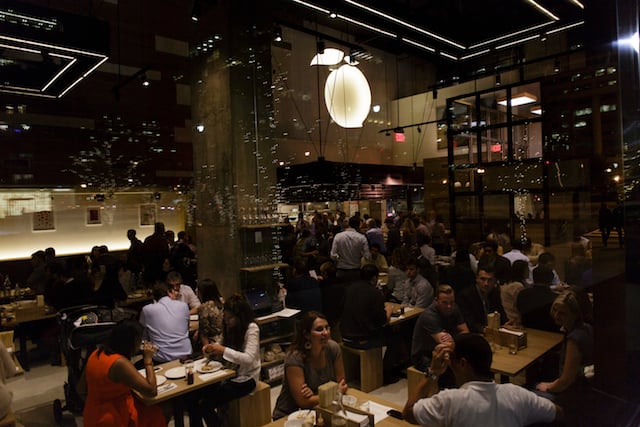
You have a lot of guilt about fine dining.
I have a lot of guilt about a lot of things. I have guilt that this is this restaurant. For a long time, I wanted it to be a hole in the wall restaurant. I wanted this in a strip mall. I wanted this in a strip mall. Any strip mall in the DC area. Literally, like a strip mall. Like Three Pigs in McLean [now closed].
And it’s harder to do that now. It’s like, what’s good for me is not good for everyone else. I’ve got a lot of people to be responsible for. It’s like a family.
But I always want diametrically opposite things at the same time. To me, that’s balance.
Anyway, I think I spoke verbal diarrhea enough.

